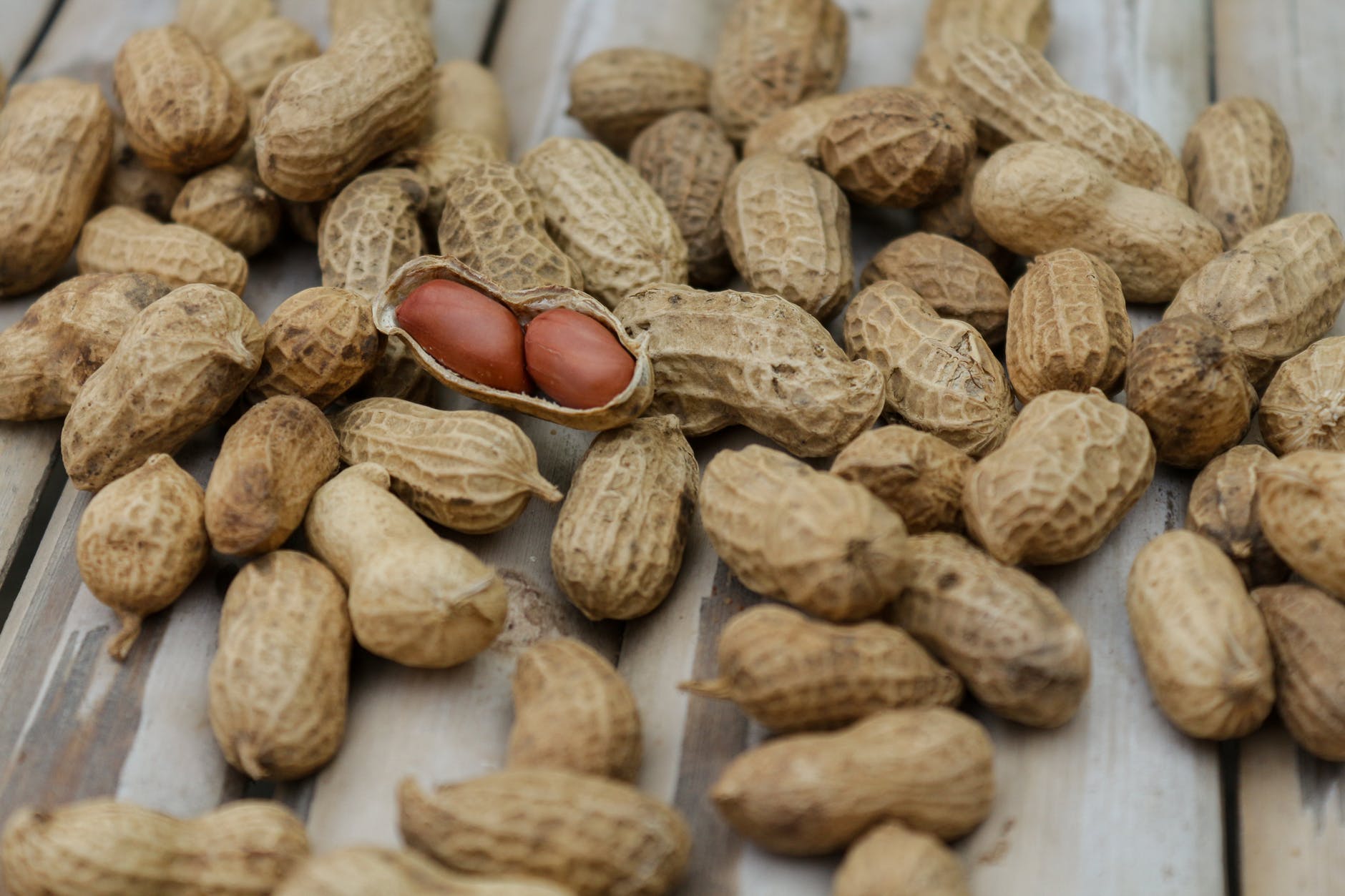
Peanut allergy is becoming increasingly common in the United States, with a tripling in reported peanut allergy prevalence over 11 years. In 2015, for the first time, a landmark study provided evidence of an intervention that significantly reduces the risk of developing peanut allergy. What is this miracle treatment? As it turns out, it is peanut, early and often! Read on to learn whether your child might benefit from early introduction of peanut, and what role the allergist plays in facilitating introduction of peanut and other allergenic foods.
When should I introduce peanut to my infant?
Based on convincing evidence (detailed at the end of this document) that early introduction of peanut reduces risk of developing peanut allergy in at-risk infants, the National Institute of Allergy and Infectious Diseases (NIAID) has created guidelines for introduction of peanut as follows:
- For infants considered to be at-risk for peanut allergy based on diagnosis of egg allergy and/or severe eczema, peanut should be introduced between 4 and 6 months of age. Allergy testing should be strongly considered prior to introduction.
- For infants with mild to moderate eczema, peanut should be introduced at 6 months.
- For infants without eczema or other risk factors, there is no specific guidance regarding timing of introduction; peanut may be introduced in accordance with family preferences and cultural practices.
For allergenic foods other than peanut, there are currently no published guidelines on timing of introduction.
How often should my infant eat peanut? What are age-appropriate forms of peanut that I can offer to my infant?
Important note: Whole peanuts and plain peanut butter represent choking hazards, and are not safe for infants and young children.
For infants with eczema and/or egg allergy, guidelines recommend keeping peanut in the diet regularly, in quantity of 2 grams three times per week. Each serving below contains approximately 2 grams of peanut protein:
Age-appropriate options for infants
- 2 tsp peanut butter thinned with 4-6 tsp hot water and then cooled.
- 2 tsp peanut butter, peanut flour, or peanut powder mixed into appropriate soft foods, such as oatmeal or other grain-based dishes, pudding, pureed meats or meatballs, pureed fruits or vegetables, smoothies, breast milk or formula, etc. Peanut butter may also be used in a baked good for infants already eating baked goods.
- 2/3 ounce Bamba Peanut Snack (about 21 pieces) or other peanut puffs with similar peanut protein content. For infants under 7 months, soften with water.
- Brands ready-made for infant feeding: MyPeanut, Hello Peanut, others.
Options for older children
- 2 tsp peanut butter spread on crackers or bread
- 1 ½ cups Cap’n Crunch Peanut Butter Crunch Cereal
- 1 full-size Reese’s peanut butter cup
- 25 Reese’s Pieces
- 8 Peanuts - Do not serve to children under 4 years of age.
For infants without eczema or egg allergy, there is no specific guidance on how frequently you should offer peanut to your child.
What about for other commonly allergenic foods? Does age of introduction matter?
For egg, introduction between 4 and 6 months of age appears to reduce risk of developing egg allergy. However, some infants may react on first ingestion of egg. There are no published guidelines for egg introduction in infants.
For other allergenic foods, there is insufficient evidence to know whether timing of introduction affects risk for development of food allergy.
Does my infant need to see an allergist before I introduce peanut and other allergenic foods? If so, when?
In the NIAID guidelines referenced above, allergy testing for peanut should be strongly considered for infants at risk for peanut allergy, based on diagnosis of egg allergy and/or severe eczema. This allergy evaluation should be done at around 4 months of age, to facilitate introduction of peanut between 4 and 6 months of age. For infants without egg allergy or severe eczema, there is no specific recommendation for testing prior to peanut introduction.
If you are uncomfortable introducing peanut or any other allergenic foods to your infant, and you think this discomfort may delay introduction of allergenic foods beyond 6 months of age, we suggest that you discuss with your pediatrician whether referral to an allergist might be helpful in facilitating food introductions.
What if there is someone in my family with food allergy? Does this mean my child needs food allergy testing before introduction of allergenic foods like peanut?
Food allergy in immediate family members may be associated with increased risk of food allergy developing in your infant. However, if your infant is without allergic conditions such as eczema, risk of food allergy is likely to be low and allergy testing may not be necessary, even when there is a family history.
As above, if you are uncomfortable introducing allergenic foods to your infant because of a family history or any other reason, we suggest that you discuss with your pediatrician whether referral to an allergist might be helpful in facilitating food introductions in a timely manner.
If it is decided that my infant would benefit from an allergy evaluation before introducing allergenic foods, at what age should we see the allergist?
If you and your pediatrician decide that your infant would benefit from consultation with an allergist, we recommend that allergy consultation be done between 4 and 6 months of age to facilitate timely introduction of allergenic foods. If an allergy consultation will end up delaying introduction of allergenic foods like peanut, we recommend you discuss with your pediatrician a plan that will avoid delays in food introduction.
If your infant is already older than 4 to 6 months, and you are uncomfortable introducing allergenic foods for whatever reason, an allergy evaluation may still be beneficial to help you introduce allergenic foods. Discussion with your pediatrician will help you decide whether allergy referral is necessary.
What should I expect if I decide to see an allergist before introducing allergenic foods?
For young infants who have yet to try allergenic foods, the visit starts with a discussion of infant’s medical history, to determine risk for food allergy developing in your infant. If you and your allergist decide that allergy testing may be beneficial for your infant, this would typically entail skin prick testing to a few select foods. Results of skin testing would be reviewed at the visit, with one of three recommendations being given for each tested food: the food may be introduced safely at home; the food should be introduced in the office; or the food should be avoided.
What is the evidence that timing of peanut and egg introduction reduces risk of allergy?
Two large studies provide evidence that timing of introduction of peanut and egg reduces risk for developing allergy to these foods:
The LEAP (Learning Early About Peanut allergy) study: At-risk infants (based on a diagnosis of severe eczema and/or egg allergy) were randomly assigned to either peanut avoidance or to early introduction of peanut by 11 months of age (with continued consumption 3 times per week). At 5 years of age, risk of peanut allergy was significantly reduced among the early introduction group compared to those avoiding peanut.
The EAT (Enquiring About Tolerance) study: Breast-fed infants were randomly assigned to standard introduction of 6 allergenic foods (peanut, cooked egg, cow’s milk, sesame, whitefish, and wheat) at 6 months of age, or to early introduction of these 6 allergenic foods at 3 months of age (with twice weekly ingestion thereafter). At 3 years of age, risk of peanut and egg allergy were significantly reduced among infants who successfully introduced the 6 foods at 3 months of age, compared to the standard introduction group.
Prepared by:
Elizabeth Feuille, MD
Edith Schussler, MD
Pediatric Allergy & Immunology Program
Department of Pediatrics, Weill Cornell Medicine
(646) 962-3410

References:
Du Toit G, Roberts G, Sayre PH, Bahnson HT, Radulovic S, Santos AF, Brough HA, Phippard D, Basting M, Feeney M, Turcanu V. Randomized trial of peanut consumption in infants at risk for peanut allergy. New England Journal of Medicine. 2015 Feb 26;372(9):803-13.
Perkin MR, Logan K, Tseng A, Raji B, Ayis S, Peacock J, Brough H, Marrs T, Radulovic S, Craven J, Flohr C. Randomized trial of introduction of allergenic foods in breast-fed infants. New England Journal of Medicine. 2016 May 5;374(18):1733-43.
Sicherer SH, Muñoz-Furlong A, Godbold JH, Sampson HA. US prevalence of self-reported peanut, tree nut, and sesame allergy: 11-year follow-up. Journal of Allergy and Clinical Immunology. 2010 Jun 1;125(6):1322-6.
Togias A, Cooper SF, Acebal ML, Assa’ad A, Baker JR, Beck LA, Block J, Byrd-Bredbenner C, Chan ES, Eichenfield LF, Fleischer DM. Addendum guidelines for the prevention of peanut allergy in the United States: Report of the National Institute of Allergy and Infectious Diseases-sponsored expert panel. Allergy, Asthma & Clinical Immunology. 2017 Dec;13(1):1.

